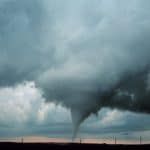Did we make a huge mistake over dual use?
By Malcolm Dando | February 27, 2011
Given the amount of space they occupy in newspapers, I cannot be the only person fascinated by obituaries. I enjoy reading about real people, their accomplishments, and the different worlds they inhabited. This pastime has led to new discoveries for me — most recently the works of late historian John Burrow.
There are two major problems with today’s approach to dual use: what it focuses our attention on, and what this focus is likely to make us omit when we consider biosecurity policies.
Burrow, an unusual academic who rarely published in journals and did not like conferences, wrote a series of widely acclaimed books, including The Crisis of Reason: European Thought, 1848–1914, which I read on a recent trip to Japan. The book’s “obligation,” as Burrow wrote in the preface, was “not so much to what we now think important in the period as to what was then found important.” That is, some of the people and literature that we find significant today were not necessarily seen that way during their own time, and some ideas once perceived as important (such as those of Jean-Baptiste Lamarck) are not seen that way today. This made me wonder about my own field, biology. What concepts that we now hold up as vital will one day fall to the scrap heap of history? How will tomorrow’s historians regard today’s ideas?
With these thoughts swirling around in my head, I arrived in Japan, where I participated in a series of meetings on biosecurity issues. At one of these meetings, others articulated a thought that I had been edging toward myself: Was it a huge mistake to cast discussions about the potential malign misuse of modern biology predominantly in terms of the concept of “dual use”?
In its original Cold War-era conception, “dual use” denoted a civilian application that could be derived from military research or technology. Perhaps it was natural for the term to evolve; today, at least in the life sciences, “dual use” indicates the possible military or terrorist use of civilian research (see, for example, the US National Academies Fink Committee report, “Biotechnology Research in an Age of Terrorism“). The Fink Committee suggested in 2004 that there were at least seven whole classes of experiments that could be of sufficient concern to warrant pre-project review of their biosecurity implications. Since then, enormous efforts have been spent on trying to design such a review system. What price did we pay for the domination of that way of thinking about dual use?
There are two major problems with today’s approach to dual use: what it focuses our attention on, and what this focus is likely to make us omit when we consider biosecurity policies. The current conception of dual use envisages the problem essentially as one of technology transfer, placing attention on individual scientists whose experiments might be of dual-use concern and on publications that might print their work. Even if risk-benefit analyses could allow clear decisions to be made about what research is of concern (which I think is doubtful), it is evident that the number of recorded incidents of civil experiments or publications of true dual-use concern is vanishingly small. What is truly of concern is the trajectory of the life sciences as a whole, and how the converging technologies that result from complex social innovative processes are to be protected from malign misuse.
The massive amount of attention and effort given to dealing with potentially dual-use experiments and publications siphons attention away from how we could effect policies that have much wider focus than individual civil scientists and their work — policies to strengthen public health systems to better deal with natural, accidental, or even deliberately caused disease in the developed and developing world, for example.
If we did make a mistake by concentrating so heavily on the potential problem of dual use in recent years, it may be too late to undo the error; however, by realizing the limitations of the concept, we may be able to alter for the positive what a future historian might have to say about our efforts to prevent bioterror and biowarfare.
Together, we make the world safer.
The Bulletin elevates expert voices above the noise. But as an independent nonprofit organization, our operations depend on the support of readers like you. Help us continue to deliver quality journalism that holds leaders accountable. Your support of our work at any level is important. In return, we promise our coverage will be understandable, influential, vigilant, solution-oriented, and fair-minded. Together we can make a difference.
Topics: Columnists















